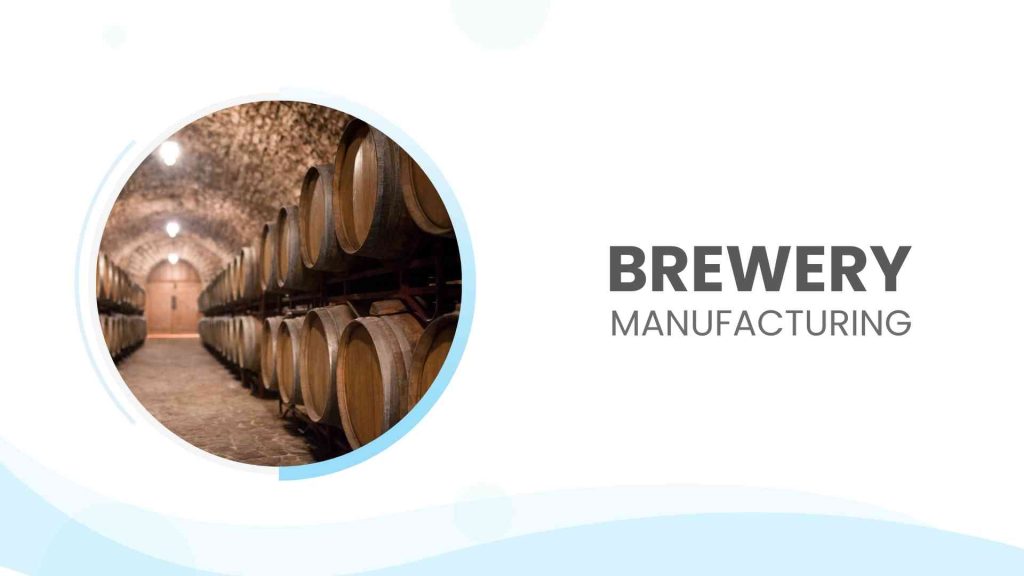The art of brewing beer has evolved over centuries, transforming from a humble craft into a thriving industry. Brewery manufacturing, often regarded as the harmonious blend of art and science, is the pivotal process behind creating one of the world’s oldest and most beloved beverages: beer. It encompasses a series of meticulously orchestrated steps transforming raw ingredients, including water, malted barley, hops, and yeast, into diverse beer styles that delight palates worldwide.
This intriguing journey from grain to glass reflects centuries of tradition. It embraces cutting-edge technologies and innovations, making brewery manufacturing a dynamic and vital facet of the global beer industry. We embark on a journey through the intricacies and evolution of brewery manufacturing, exploring its rich history, key components, and enduring relevance in shaping the world of beer production today.
Central to this transformation is brewery manufacturing, a process that combines tradition with cutting-edge technology to produce the world’s favorite beverage. We explore the intricate world of brewery manufacturing, delving into its history, key components, modern innovations, and its role in shaping the beer industry today.
The roots of brewery manufacturing trace back to ancient civilizations. Brewing beer was a domestic endeavor, with families and communities producing beverage variations. These early brews were often simple water, grains, and wild yeast concoctions fermented in crude containers.
The invention of steam engines and advances in metallurgy allowed for larger-scale brewing operations. Breweries began adopting standardized processes and equipment. Increase in production capacity while maintaining quality and consistency.
Key Components of Brewery Manufacturing
Ingredients: Brewery manufacturing starts with carefully selected ingredients. Water quality, malted barley, hops, and yeast are the foundation of any beer recipe. The choice of these ingredients greatly influences the final product’s flavor, aroma, and characteristics.
Milling and Mashing: Grains, usually malted barley, are milled into a coarse powder and mixed with hot water in mashing. This extracts sugars and enzymes from the grains, forming a sugary liquid known as wort.
Boiling and Hopping: The wort is then boiled, and hops are added at specific intervals. Hops contribute bitterness, aroma, and flavor to the beer, balancing the sweetness from the malt.
Fermentation: After the boiling process is done, the wort is cooled and moved to fermentation tanks. Yeast is added, and fermentation begins. This crucial step transforms sugars into alcohol and carbon dioxide, producing alcohol and defining the beer’s taste and aroma.
Conditioning and Packaging: Once fermentation is complete, the beer is conditioned, often involving aging, carbonation adjustments, and filtration. Finally, it is packaged in bottles, cans, or kegs for distribution.
Modern Innovations in Brewery Manufacturing
Brewery manufacturing has come a long way from its humble beginnings, with innovations driving efficiency, consistency, and sustainability in the industry:
Automation: Modern breweries utilize automated systems to control various stages of production, from ingredient handling to fermentation and packaging. This precision ensures product consistency and reduces human error.
Quality Control: Advances in lab technology enable breweries to monitor and adjust the brewing process in real time. It helps maintain product quality and detect issues before they affect the final product.
Sustainability: Many breweries are adopting eco-friendly practices, such as wastewater treatment, energy-efficient equipment, and reusable packaging. These efforts reduce the environmental impact of brewing operations.
Craft Brewing: While large-scale breweries dominate the market, the craft beer movement has gained momentum. Small, independent breweries focus on unique flavors and traditional brewing methods, contributing to a diverse beer landscape.
Brewery Manufacturing’s Role in the Beer Industry
Brewery manufacturing is the backbone of the beer industry. It ensures that the beer you enjoy at your local pub or purchase from the store meets the desired quality standards, whether a mass-produced lager or a small-batch IPA. Additionally, it paves the way for innovation, allowing brewers to experiment with ingredients and techniques to create new and exciting beer styles.
Brewery manufacturing is a fascinating blend of tradition and innovation, where the art of brewing meets the science of production. It has become a cornerstone of the global beer industry through centuries of refinement and modern technological advancements. As consumers continue to demand diverse and high-quality brews, brewery manufacturing will undoubtedly play a pivotal role in shaping the future of beer production.
How can Acumatica help?
Acumatica Cloud ERP is a potent tool for elevating brewery manufacturing. Its comprehensive features, including inventory management, quality control, and financial management, streamline operations and ensure that breweries can control their production processes precisely.
With real-time data insights, Acumatica empowers brewers to make informed decisions, optimize resource allocation, and respond swiftly to market demands. Furthermore, its scalability accommodates the diverse needs of breweries, from small craft operations to large-scale enterprises, fostering growth and innovation in an ever-evolving industry. Acumatica ERP is not merely a system but a catalyst for efficiency, quality, and success in the dynamic world of brewery manufacturing. Contact us for a customized ERP.

Vijay comes with a vast experience in ERP and enterprise solutions space with about 20 years of experience in various packaged application like Acumatica, SAP, Orion, Salesforce.com, SugarCRM and, SalesLogix.
















